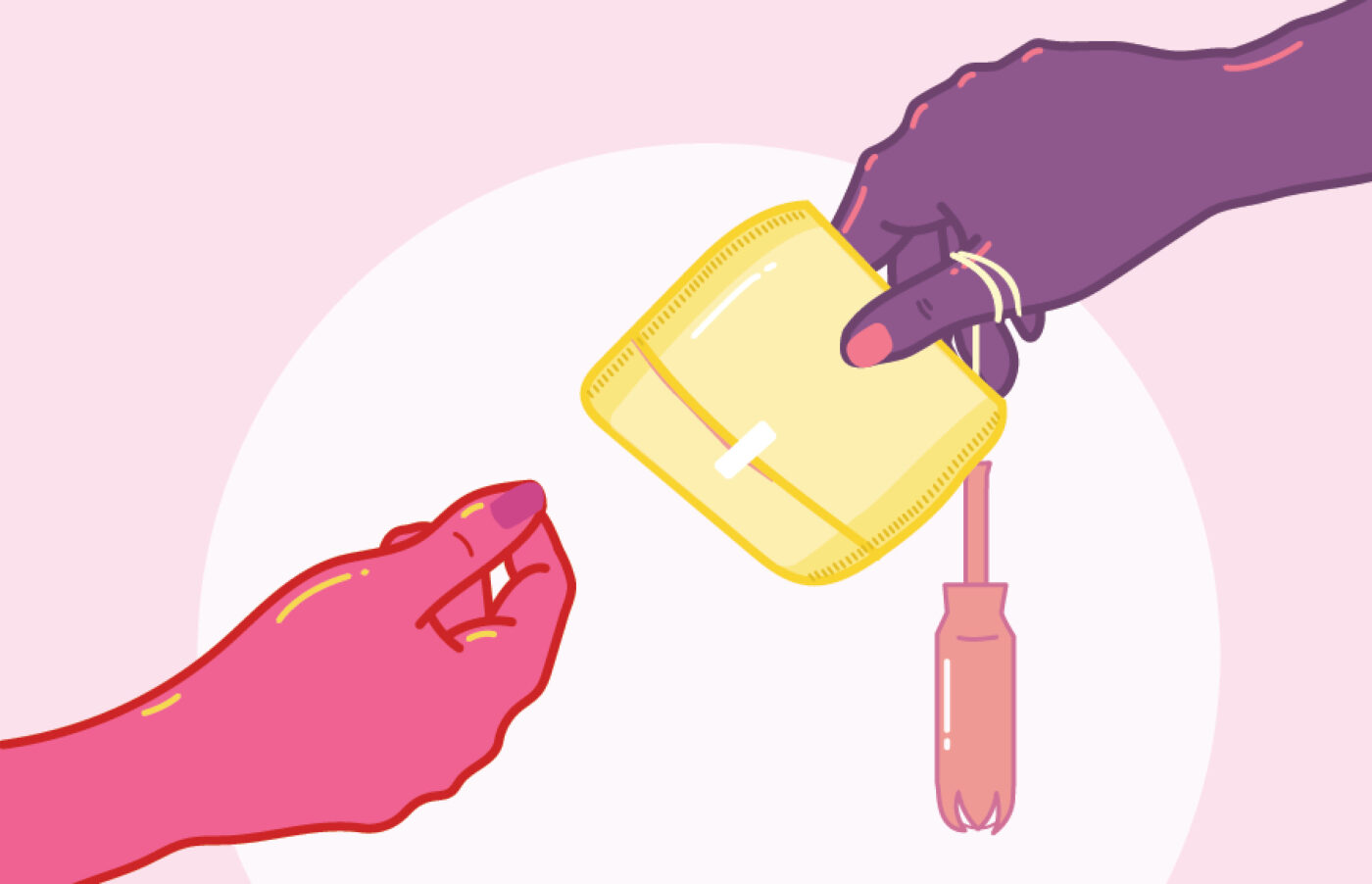Vietnam is currently facing the new COVID-19 wave with a new, stronger variant. Even though there are new cases everywhere, Ho Chi Minh and many southern provinces are considered as big clusters and are currently locked down. To minimize the spread, localities only allow the transportation of essential goods that are listed by the Ministry of Industry and Trade. On 28th of July, according to Vnexpress, many vehicles carrying sanitary pads were blocked at checkpoints in Ho Chi Minh City and several southern provinces since they are not classified as essential goods.
According to Nielsen U&A 2021’s study, approximately 30 million Vietnamese women use sanitary pads in their menstrual cycle, and need about 16 pads for one period. If the average length of a cycle is 4 days, everyday there are 4 million women who are menstruating and the total number of sanitary pads needed for 1 day is about 16 million pieces (UN Women). Although there are some other alternatives for sanitary pads, including menstrual cups and reusable napkins, they are not suitable for everyone, especially those who stay in quarantine camps. Therefore it is questionable that sanitary pads are classified as “inessential goods”.
If the supply chain is congested or broken, shortages of sanitary pads will appear, not only affecting people’s health and the economy, but also strengthening gender inequality and menstruation stigma. The fact of having periods is not, and cannot be a disadvantage that women have to bear, both economically and socially.
Menstruation is a natural biological process in the life of almost every woman, and an indicator of women’s health. It’s not a choice for women to menstruate whenever they like, or to stop menstruating if they do not feel like having it. Period, according to the NHS, is a part of the menstrual cycle when a woman bleeds from her vagina for about 3 to 8 days, and this usually happens every 28 days. In a period, it depends on the amount of blood, women can decide how frequently to change pads, but to ensure hygiene, pads must be changed after 4-6 hours. And according to UNFPA, “when people cannot access safe bathing facilities and safe and effective means of managing their menstrual hygiene, they are not able to manage their menstruation with dignity.”
Not only are important to women’s health, sanitary pads are also crucial for women to work and to live their lives normally. As mentioned, Vietnam is facing the biggest COVID-19 wave, a large number of medical staff are women, working in a dangerous environment without even taking a nap. What would happen to them if there are no pads to use in their period? Stop working? Therefore, menstrual supplies are essential items that ensure the rights of women, and localities should be more flexible and considerate in the application of new directives, which still need to be fixed, from the government.
However, the topic about this “period and pads stuff” is not serious, and even seems funny to some people. More disappointingly, if you search the phrase “xe cho bang ve sinh bi chan” on some social media, there are still some inappropriate comments about women’s period. “The whole city will stink”, “who wants to stop menstruating, call me, you won’t need pads for the next 10 months” are just two examples that I selected on Facebook. Maybe they just thought that it was “hilarious” and did not try to be misogynistic, we are still warned about how awareness of the menstrual cycle needs to be raised.
In many Asian countries (as well as mine), “menstrual taboo”, menstruation stigma and period shaming are still something that exist among the society. Some stores tend to put packs of sanitary pads in black bags and give them to customers, as some women are “too shy” to let people know that they are having a period. The amount of knowledge about menstruation that students learn in schools here is just enough to explain the definition. Girls learn from their moms how to prepare themselves for menstruating, not from schools. As a result, it is not surprising that some men have a big lack of knowledge about menstruation and period, to the level of asking their girlfriends if they need … hemostatic drugs.
Sanitary pads being classified as “inessential goods” may happen because of the use of the new directive, which still needs fixing. However, some men’s attitude towards this issue is a sign, warning us about the need for menstrual education. Mentioning about menstrual education, it only helpful if people teach it the right way, because
“When discussing menstrual education in schools, usually it is to teach the female students to manage their period in silence” (observatory.tec.mx). Gender equality will never exist when the physiological differences between male and female are not respected, when menstruating is considered as a “disadvantage” that makes women “weaker”.
